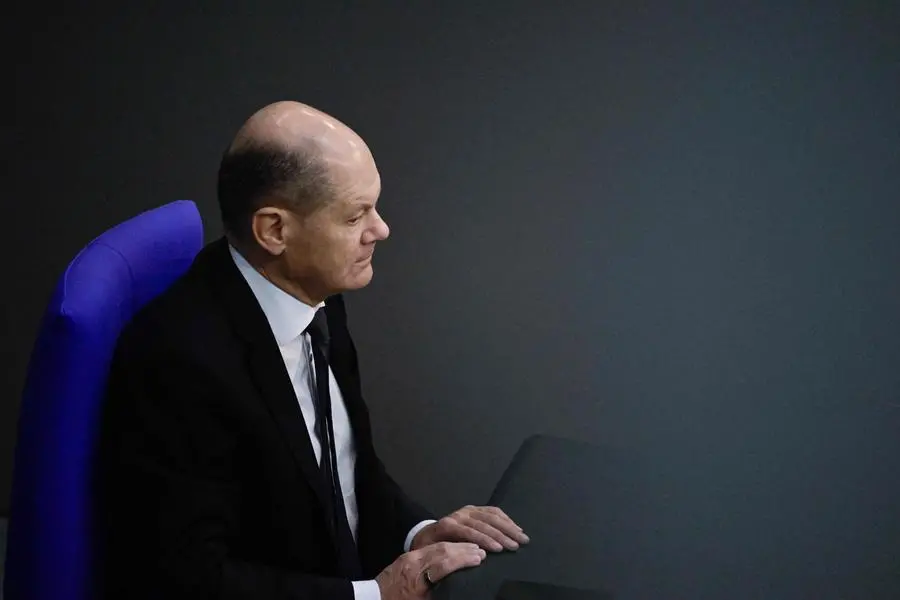PHOTO
German Chancellor Olaf Scholz joined four other European leaders Wednesday in urging EU countries to boost efforts to provide crucially needed weapons for Ukraine to resist the Russian invasion.
The leaders, in a letter published in the Financial Times a day before an EU summit, admitted that the EU had "fallen short" of a pledge to supply Ukraine with a million artillery rounds by the end of March.
"But we can't just give up on our promise," wrote Scholz, Denmark's Mette Frederiksen, the Czech Republic's Petr Fiala, Estonia's Kaja Kallas and the Netherlands' Mark Rutte.
"We must renew our resolve and redouble our efforts in order to ensure that we sustain our support for as long as it takes," they urged.
As orders placed now would only be delivered next year, the leaders underlined that it was crucial to find ways to accelerate the supplies of promised artillery rounds -- through donation of existing stocks or joint procurement.
"The burden is so great that all states need to do everything they can to support Ukraine -- it must continue to be a collective effort," they wrote, underlining that it was a "question of life and death" for Ukrainian soldiers.
Scholz has in recent weeks repeatedly urged European nations to step up their weapons contributions, warning that what had been earmarked for 2024 is "not big enough".
Fears that help from the United States -- Ukraine's biggest weapon supplier to date -- would fall away were also at the back of allies' minds.
President Joe Biden has made backing Ukraine a priority and US weapons and financial assistance have been crucial in helping the pro-Western country battle against a far larger attacking Russian force.
But opposition Republicans have led a push to halt the effort, refusing to authorise new budget outlays unless the Democrats first agree to sweeping, tough new measures against illegal migration.
With the US in an election year that could again pit Biden against Donald Trump, Ukraine's President Volodymyr Zelensky has warned that a Trump return to the White House would likely bring a "different policy" on the war.





















